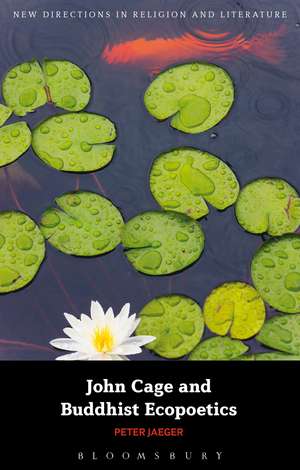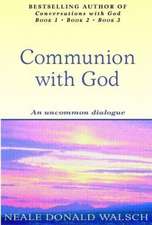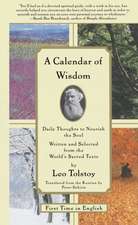John Cage and Buddhist Ecopoetics: New Directions in Religion and Literature
Autor Dr Peter Jaegeren Limba Engleză Paperback – 25 sep 2013
| Toate formatele și edițiile | Preț | Express |
|---|---|---|
| Paperback (1) | 176.86 lei 6-8 săpt. | |
| Bloomsbury Publishing – 25 sep 2013 | 176.86 lei 6-8 săpt. | |
| Hardback (1) | 594.35 lei 6-8 săpt. | |
| Bloomsbury Publishing – 25 sep 2013 | 594.35 lei 6-8 săpt. |
Din seria New Directions in Religion and Literature
- 21%
 Preț: 215.96 lei
Preț: 215.96 lei - 30%
 Preț: 509.20 lei
Preț: 509.20 lei -
 Preț: 176.86 lei
Preț: 176.86 lei - 24%
 Preț: 195.56 lei
Preț: 195.56 lei -
 Preț: 192.27 lei
Preț: 192.27 lei - 30%
 Preț: 510.42 lei
Preț: 510.42 lei - 30%
 Preț: 510.03 lei
Preț: 510.03 lei - 30%
 Preț: 509.86 lei
Preț: 509.86 lei - 14%
 Preț: 175.91 lei
Preț: 175.91 lei - 30%
 Preț: 566.83 lei
Preț: 566.83 lei - 23%
 Preț: 190.87 lei
Preț: 190.87 lei - 21%
 Preț: 217.35 lei
Preț: 217.35 lei - 24%
 Preț: 195.37 lei
Preț: 195.37 lei - 23%
 Preț: 254.55 lei
Preț: 254.55 lei - 24%
 Preț: 188.55 lei
Preț: 188.55 lei - 14%
 Preț: 176.44 lei
Preț: 176.44 lei - 12%
 Preț: 215.88 lei
Preț: 215.88 lei - 14%
 Preț: 196.96 lei
Preț: 196.96 lei - 23%
 Preț: 192.55 lei
Preț: 192.55 lei - 14%
 Preț: 183.70 lei
Preț: 183.70 lei - 23%
 Preț: 191.38 lei
Preț: 191.38 lei - 23%
 Preț: 254.02 lei
Preț: 254.02 lei - 14%
 Preț: 164.59 lei
Preț: 164.59 lei - 24%
 Preț: 190.33 lei
Preț: 190.33 lei - 22%
 Preț: 596.98 lei
Preț: 596.98 lei - 30%
 Preț: 508.95 lei
Preț: 508.95 lei - 30%
 Preț: 540.54 lei
Preț: 540.54 lei -
 Preț: 176.44 lei
Preț: 176.44 lei - 23%
 Preț: 254.55 lei
Preț: 254.55 lei - 23%
 Preț: 235.00 lei
Preț: 235.00 lei
Preț: 176.86 lei
Preț vechi: 206.43 lei
-14% Nou
Puncte Express: 265
Preț estimativ în valută:
33.84€ • 35.34$ • 27.95£
33.84€ • 35.34$ • 27.95£
Carte tipărită la comandă
Livrare economică 15-29 aprilie
Preluare comenzi: 021 569.72.76
Specificații
ISBN-13: 9781441117526
ISBN-10: 1441117520
Pagini: 200
Dimensiuni: 138 x 216 x 13 mm
Greutate: 0.25 kg
Editura: Bloomsbury Publishing
Colecția Bloomsbury Academic
Seria New Directions in Religion and Literature
Locul publicării:London, United Kingdom
ISBN-10: 1441117520
Pagini: 200
Dimensiuni: 138 x 216 x 13 mm
Greutate: 0.25 kg
Editura: Bloomsbury Publishing
Colecția Bloomsbury Academic
Seria New Directions in Religion and Literature
Locul publicării:London, United Kingdom
Caracteristici
Uses an innovative modular format to explore relationship between contemporary poetics and buddhism.
Notă biografică
Peter Jaeger is Reader in the Department of English and Creative Writing at Roehampton University, UK.
Cuprins
Series Editors Introduction \ Preface: The Buddhist Quilting Point \ Cage - Scalapino - Davies \ Reading New Buddhist Poetry \ Further Reading \ Index
Recenzii
A provocative and useful contribution to Cage studies ... Jaeger's study is an important one, in particular for its ease in discussing difficult concepts of Buddhism and its sure handling of continental philosophy; the bridges he builds between both traditions point toward a particularly fruitful direction for future scholarship.
What makes Peter Jaeger's book on Cage's Zen interests unique is its turn from Buddhist ideas to the formal innovations that Cage took to be integral to an adequate ecopoetics. Jaeger takes seriously Cage's belief that one must study nature in her manner of operation; consequently, his book does not talk about Cagean Zen; rather, it performs it, providing us with a theatrical mise-en-scene of its processes. Adopting Cage's own procedural methods, based on I Ching chance operations, Jaeger presents his "topics" in a highly novel way, allowing for interruptions, silences, and incremental repetitions. In the course of Jaeger's own "Lectures on Nothing," we learn a great deal about Cage's relationship to other poets and artists as well as about his particular critique, not unrelated to Lacan's psychoanalytic one, of Western social and political organization. Himself a poet, Jaeger has produced a learned study that is also great fun to read-a delightful poetic text in its own right.
Peter Jaeger offers an enlightening guide to Zen and related Western sources and resonances in John Cage's aesthetics. John Cage and Buddhist Ecopoetics is a lo-fi commentary on how some tenets of Buddhist thought, especially as filtered through D. T. Suzuki and Alan Watts, were pragmatically adapted and amalgamated in radical mid-20th-centry North American poetry and art.
What makes Peter Jaeger's book on Cage's Zen interests unique is its turn from Buddhist ideas to the formal innovations that Cage took to be integral to an adequate ecopoetics. Jaeger takes seriously Cage's belief that one must study nature in her manner of operation; consequently, his book does not talk about Cagean Zen; rather, it performs it, providing us with a theatrical mise-en-scene of its processes. Adopting Cage's own procedural methods, based on I Ching chance operations, Jaeger presents his "topics" in a highly novel way, allowing for interruptions, silences, and incremental repetitions. In the course of Jaeger's own "Lectures on Nothing," we learn a great deal about Cage's relationship to other poets and artists as well as about his particular critique, not unrelated to Lacan's psychoanalytic one, of Western social and political organization. Himself a poet, Jaeger has produced a learned study that is also great fun to read-a delightful poetic text in its own right.
Peter Jaeger offers an enlightening guide to Zen and related Western sources and resonances in John Cage's aesthetics. John Cage and Buddhist Ecopoetics is a lo-fi commentary on how some tenets of Buddhist thought, especially as filtered through D. T. Suzuki and Alan Watts, were pragmatically adapted and amalgamated in radical mid-20th-centry North American poetry and art.










